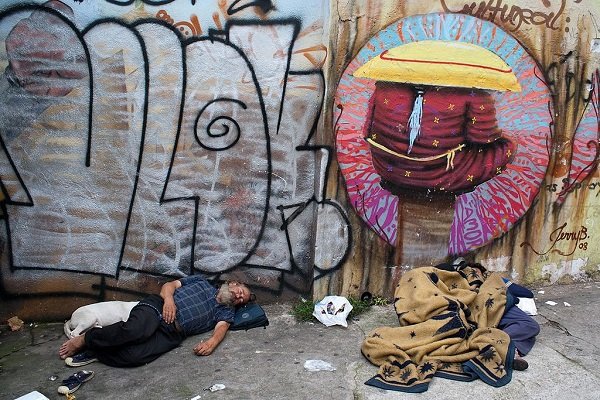Brazil’s socioeconomic issues were intensified with the pandemic. Poverty, hunger, and unemployment rose while income dropped. In addition, the rising fuel prices stimulated inflation and led truck drivers to call for strikes. Pressured, the government created a new social program to help the low-income families, “Auxílio Brasil” and issued measures to contain the fuel price. However, critics stated that such measures are ineffective and reflect the government’s bet to pave the way for re-election in 2022.
This Content Is Only For Subscribers
To unlock this content, subscribe to INTERLIRA Reports.
WORSENING SOCIAL CONDITIONS
Besides the direct impact on the country’s health conditions, the Covid-19 pandemic aggravated socioeconomic problems historically present in Brazil. Between January and April 2021, the unemployment rate reached a record level of 14,7%. Even though, recent data from the Brazilian Institute of Geography and Statistics (IBGE) reveal an improvement, the rate fell to 13,2%, the total of unemployed workers remains high, 13,7 million. On top of that, income from work shrunk. The average real income dropped by 10,2% in one year, the biggest drop in the historical series, which started in 2012.
Poverty was also fueled by the crisis. According to a study from the Getúlio Vargas Foundation (FGV), between November 2019 and January 2021, poverty increased in 23 states and the Federal District.
Another concerning factor is hunger. A survey prepared in December 2020, by the Brazilian Research Network on Sovereignty and Food and Nutritional Security (Rede Penssan) indicates that 19,1 million citizens (9% of the population) suffer from hunger. This result represents more than 8,8 million people if compared to numbers provided by the IBGE in 2018.
AUXÍLIO BRASIL: THE NEW BOLSA FAMÍLIA
Seeking to respond to this scenario, the Federal Government implemented a new social program for low-income families, the “Auxílio Brasil”. It replaced the 18-year-long program “Bolsa Família”. The new project was created on August 10th, but it was only regulated on November 8th, when values to be paid to the families and other rules were set. The 1st payment also happened in this month. The average amount paid by the “Auxílio Brasil” will be R$ 217, representing a 17,84% rise in relation to what was given through the “Bolsa Família”. However, the government promised that the average amount will reach R$ 400, but only during 2022.
The new program also expanded the number of beneficiaries. The Government expects to help a total of 17 million families, an increase of 2,4 million in relation to the total subscribed to the previous social project. This was possible, because the conditions for a family to be considered under poverty and extreme poverty were updated. The income for a family to be considered in extreme poverty went from R$ 89 to R$ 100 per person; that of poverty, from R$ 178 to R$ 200.
SOCIAL PROGRAMS TO FIGHT THE CONSEQUENCES OF RISING FUEL PRICES
The Federal Government has also been trying to create programs to contain the fuel price. In the last 12 months, it has increased by 40% and made the social crisis even worse. The issue has created much concern because it affects the public through inflation, making food and other essential items more expensive. It also drove cooking gas value up, +38% in 12 months. On top of that, the topic is sensitive for strategic groups, such as truck drivers, who have been threatening to go on strike if diesel cost were not reduced.
Attempting to minimize tensions with truckers and the impact of the cooking gas rises for the poor population, authorities have come up with a few measures. As an interim solution, on November 1st, the tax (ICSM) on fuels was ‘frozen’ for 90 days. In addition, on November 8th, the Government announced that it is preparing a provisional measure that will create a “stabilization fund” to ease the rise in diesel and cooking gas prices. Nonetheless, it will likely not include gasoline, which has suffered the biggest increases among fuels.
BETWEEN CRITICISMS AND A DIFFICULT SCENARIO
Specialists and the opposition have criticized the measures adopted by the Government. The “Auxílio Brasil” would be a program made to increase the President’s popularity for the next year’s elections. In addition, they argued that it will expand Government debts and disrupt its fiscal program, which can stimulate inflation and slow down the economic recovery. They also state that the programs implemented to fight the rise in fuel prices are temporary and have a small impact.
Despite the criticisms, with the end of the Emergency Aid, which helped 67,9 million citizens, in October and the worsening of social conditions, these programs may be important solutions to reduce the social effects of the current crisis on the poorest and hold new strikes by strategic sectors.




